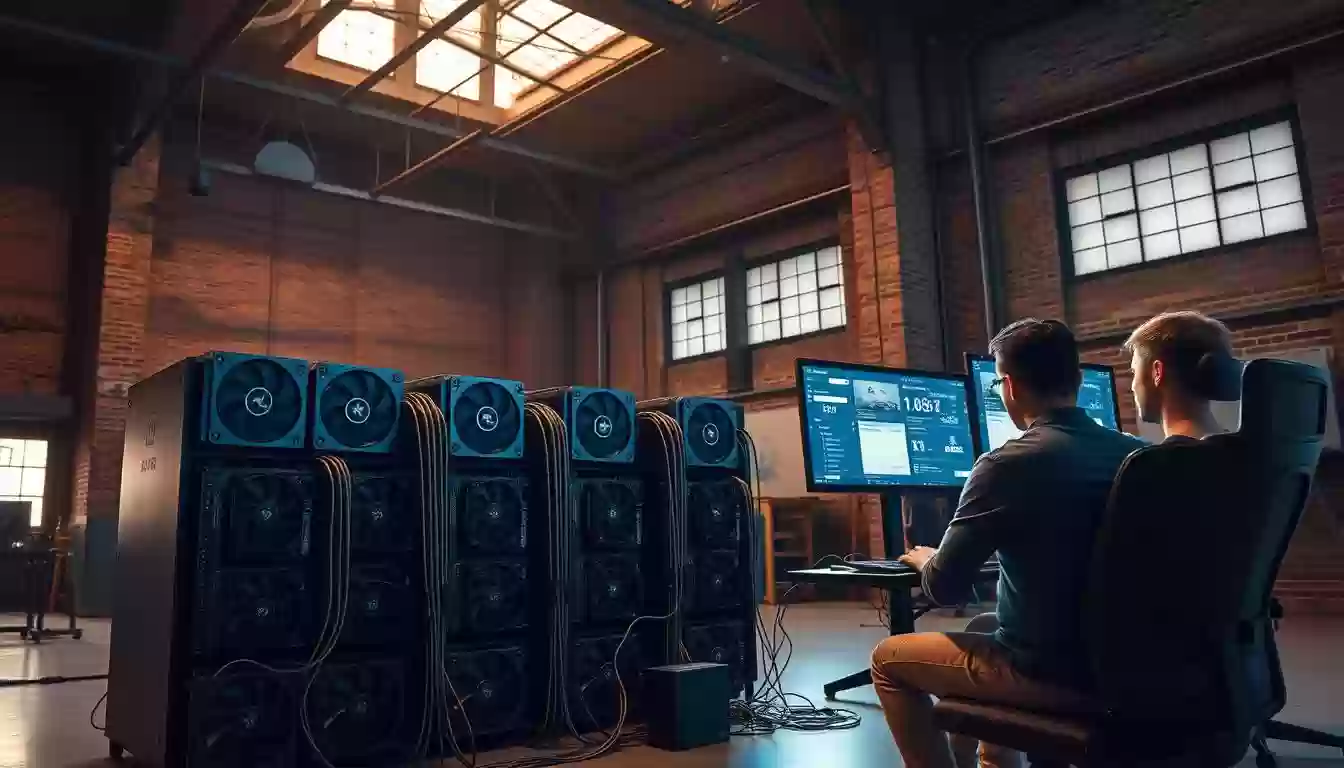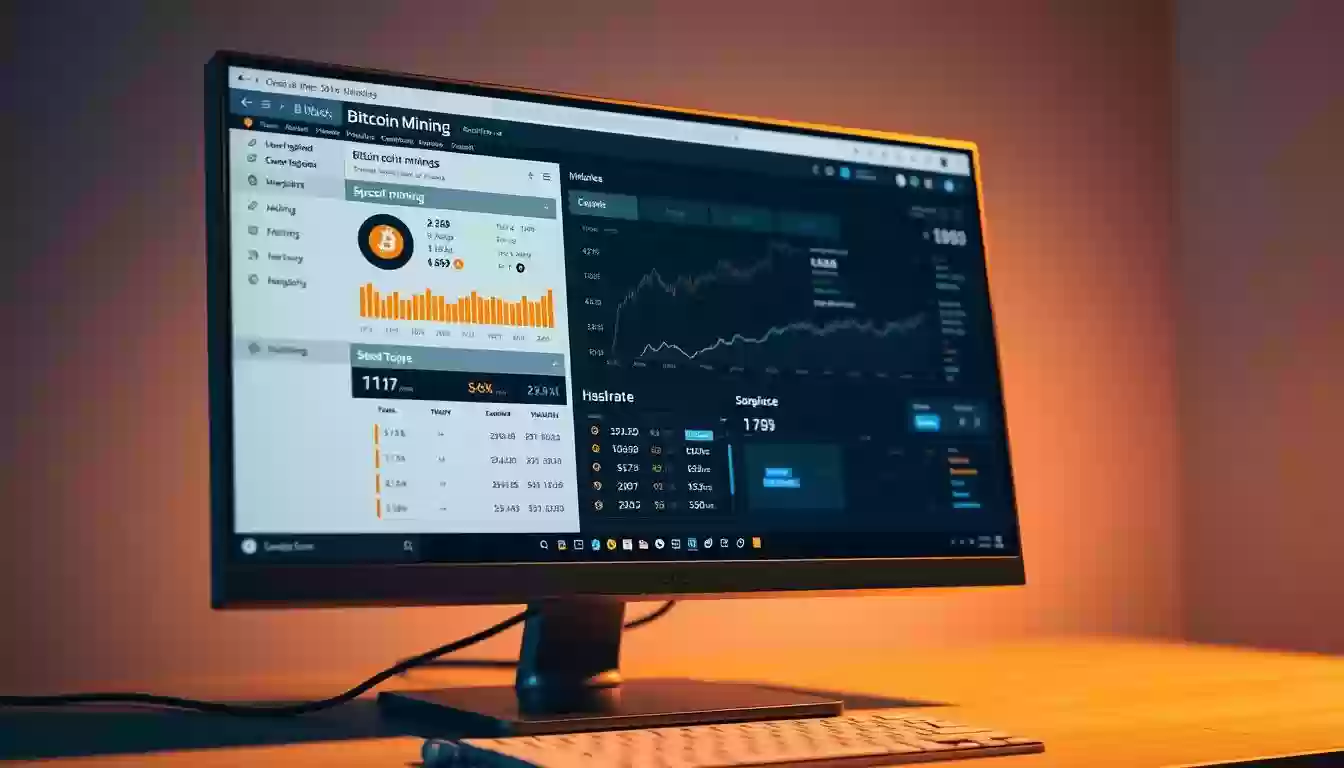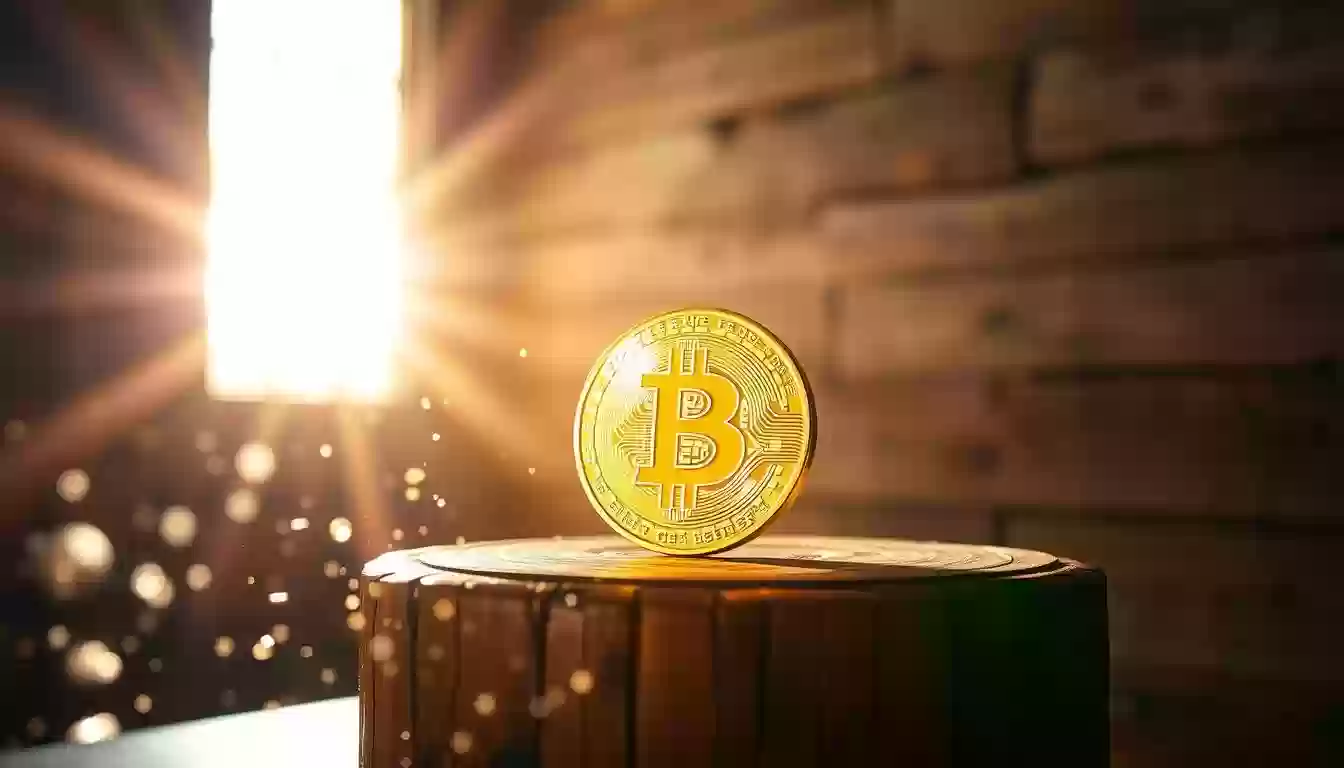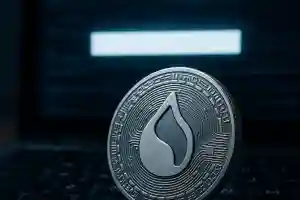Solo Mining Success Stories: Miners Who Hit the Jackpot
 23 Feb 25
23 Feb 25
What does it take to earn big as a solo Bitcoin miner? A recent story of a miner finding a block worth over $300,000 is fascinating. It makes us think about the chances of getting lucky in solo mining.
Many wonder if solo mining can lead to huge wins. With 11 solo-mined blocks found in just six months, it seems more people are trying it. We'll look into the success stories of solo miners, what makes them successful, and the risks they face.
Understanding Bitcoin Mining Basics
Bitcoin mining adds new Bitcoin to the world and checks transactions. It uses blockchain technology and a method called proof-of-work (PoW). Miners solve hard math puzzles, needing lots of computer power.
As more people mine, the puzzles get harder. This makes mining more challenging. You can learn more about mining cryptocurrency and its growth.
The reward for mining a block is now 3.125 BTC. But this reward goes down over time. Big mining farms make a lot of money, but small miners struggle. It's key to know how Bitcoin mining works and the role of blockchain technology.
https://www.youtube.com/watch?v=2oX86IZj55E&pp=ygUKI3NvbG9ibG9jaw%3D%3D
Exploring Bitcoin mining, we see solo and pool mining. Solo mining is when one miner tries to solve puzzles alone. Pool mining is when many miners team up to share the work and rewards.
Understanding these methods and blockchain technology helps us grasp the complexity of mining cryptocurrency. It also helps us make smart choices if we want to get involved.
The Appeal of Solo Mining
Solo mining gives miners independence and control over their work. It's different from joining a crypto mining pool. Solo miners can make their own choices and work alone. They also have a chance to win the whole block reward if they solve a block.
Bitcoin mining software is key for solo miners. It helps them work better and solve blocks faster. By picking the right software, solo miners can maximize their hash rate and work more efficiently. It's also a great way to learn about Bitcoin mining.

Solo mining is harder than joining a pool, but it's rewarding. With the right tools and software, solo miners can optimize their operations and earn more. As the crypto market grows, solo mining is a good choice for those who want to be in charge.
Bitcoin Solo Mining Rewards Explained
Bitcoin solo mining rewards are a key part of mining Bitcoin. The current reward is 3.125 BTC, worth over $300,000. This reward goes to the miner who mines a block, whether solo or in a pool. A recent solo miner got $326,301, showing solo mining's high reward possibility.
The Bitcoin mining profitability depends on several factors. These include the block reward, transaction fees, and mining difficulty. As mining gets harder, solo mining rewards are tougher to get. But, with the right gear and strategy, solo miners can earn big.
https://www.youtube.com/watch?v=JYAfOJPxMaY
How Rewards are Calculated
Bitcoin solo mining rewards are based on the block reward and transaction fees. The block reward is 3.125 BTC per block. Transaction fees are added to this. The total reward goes to the miner who mines the block.
The Role of Block Difficulty
Block difficulty is very important in Bitcoin mining. As difficulty increases, mining gets harder, and rewards are harder to get. But, with the right equipment and strategy, solo miners can earn big. This makes Bitcoin mining profitability a good option for those up for the challenge.
Factors Influencing Solo Mining Success
Several factors can affect solo mining success. The right hardware and software are key. They can greatly improve mining chances.
Hardware Requirements
The type of hardware used is very important. Miners with advanced technology see a 30% increase in success. Better hardware can solve complex puzzles faster.
Choosing the Right Software
Choosing the right Bitcoin mining software is also critical. It must work well with the hardware. The right software helps miners find lucrative blocks. Together, the right hardware and software boost success and profits.

| Hardware | Software | Success Rate |
|---|---|---|
| Advanced | Compatible | 30% increase |
| Basic | Incompatible | Lower success rate |
Strategies for Effective Solo Mining
To succeed in solo mining, it's key to boost your hash rate and mine effectively. This means making your mining operations better to earn more. By doing this, you can solve tough math problems and get rewards.
One important strategy is to keep an eye on the mining process and tweak plans when needed. Watch your hash rates, power use, and any mining issues. This way, you can make sure your mining runs smoothly and well.
Also, time your mining efforts wisely. Know the blockchain's current state and plan your mining. Timing it right can help you solve equations and earn rewards. This boosts your solo mining success and profit.
Using these strategies can help solo miners succeed and earn more. It's important to keep up with new solo mining tips and best practices. This helps you stay ahead and achieve success in solo mining.
Real-Life Solo Mining Success Stories
Solo mining is tough because of the big mining farms. But, some solo miners have won, thanks to luck, good hardware, and smart strategies. Finding a Bitcoin lucky block is rare, with only 270 solo-mined blocks by March 2023.
The Solo CK Pool has helped mine at least 275 blocks alone. This shows solo miners can win, even when it's hard. In recent months, 11 solo blocks were found, showing solo mining can work with the right tools and plan.

Winning a Bitcoin block can get you about 3.125 BTC, worth over $300,000. This prize is a big reason to keep trying solo mining. Knowing what helps solo miners succeed can help you too. It might just lead to finding a Bitcoin lucky block.
The Concept of a Bitcoin Lucky Block
Luck is a big part of mining cryptocurrency. A Bitcoin lucky block is a block mined by a solo miner, despite the low chances. It happens when a solo miner solves a complex equation before bigger mining pools do.
Getting a Bitcoin lucky block is very hard. Miners have to try about 464 sextillion times to get a hash with 20 leading zeroes. But, when a solo miner wins, they get a big reward of 3.125 BTC.

In mining cryptocurrency, finding a Bitcoin lucky block is rare and exciting. As the world of cryptocurrency grows, it will be interesting to see how lucky blocks change. New technologies might make it easier for solo miners to find lucky blocks.
Risks Associated with Solo Mining
Solo mining can be very profitable, but it also has big risks. The cost of equipment and energy needed to mine Bitcoin is high. This can make it hard to make money if not managed well. By March 2023, only 270 solo-mined blocks had been found, showing how tough solo mining is.
Even so, some solo miners have made a lot of money. For example, one miner found Bitcoin Block 883,181 and got 3.125 BTC, worth over $300,000. But, finding a block is rare, and miners might only find one every 10 months. It's important to think about the costs and the market before starting solo mining.
To lower these risks, solo miners need to keep up with market trends. They should adjust their plans based on what's happening in the market. Knowing what affects solo mining success, like the need for good hardware and market changes, helps miners make better choices. As the crypto market keeps changing, solo miners must stay flexible and ready to adapt to new situations.
The Future of Bitcoin Solo Mining
Bitcoin's network keeps growing, making solo mining more competitive. Yet, solo miners can win big. For example, one miner solved block 881423 and got 3.125 BTC.
New mining solutions, like FutureBit, help solo miners. They make mining cheaper and more efficient. With FutureBit, running a full Bitcoin node costs under $700. This opens doors for more miners to succeed.
The future of solo mining in Bitcoin looks bright. New tech and mining gear are coming. As the network grows, solo miners will find more chances to win big.
| Miner | Block | Reward |
|---|---|---|
| FutureBit user | 881423 | 3.125 BTC |
| FutureBit user | 867760 | 3.125 BTC |
Comparing Solo Mining and Pool Mining
Bitcoin mining offers two main choices: solo mining and pool mining. Solo mining uses personal hardware to solve complex math problems. Pool mining, on the other hand, involves joining a group to share resources and boost solving chances. We'll look at the good and bad of each to help new miners choose.
A crypto mining pool lets miners pool their resources, upping their reward chances. It's great for new miners, as it offers a steady income. Solo mining, though, can be more rewarding but needs lots of power and is less predictable.
There are many Bitcoin mining software options, each with its own benefits and drawbacks. Popular ones include CGMiner, EasyMiner, and MultiMiner. When picking software, think about ease of use, compatibility, and fees. Knowing the pros and cons of solo and pool mining helps new miners succeed in Bitcoin mining.
Conclusion: Is Solo Mining Right for You?
Solo mining for Bitcoin can lead to big rewards, but it needs a lot of investment and tech skills. Whether solo mining is for you depends on your resources, how much risk you can take, and your goals.
If you have the right mining hardware, a steady power source, and know-how, solo mining might work for you. The stories of solo miners who won big show what's possible. But, it's key to know the risks and challenges.
Evaluating Your Resources
Before starting solo mining, check your resources. Can you afford top ASIC miners? Are you ready for the constant electricity costs? Do you have the tech skills to run a mining operation well?
Making the Decision to Solo Mine
If you think you can handle solo mining's challenges, it might be worth trying. But, if you need steady income, pool mining could be better. It gives more consistent rewards.
FAQ
What is Bitcoin solo mining?
Bitcoin solo mining means one person tries to find Bitcoin blocks alone. They don't join a mining pool. If they find a block, they get the whole reward, not sharing it with others.
What are the advantages of solo mining compared to pool mining?
Solo mining lets you work alone and keep all the rewards if you find a block. It gives you more control and a chance for bigger rewards.
How are Bitcoin solo mining rewards calculated?
Rewards come from the block reward, transaction fees, and mining difficulty. As mining gets harder, finding a block is tougher. But, the reward is bigger if you do.
What factors influence the success of solo mining?
Success depends on your mining gear, software, and hash rate. Timing is also key. Choosing the right tools and optimizing your mining can boost your chances.
What are some real-life examples of solo mining success stories?
Some solo miners have hit big, like one who found a block worth over $300,000. These stories inspire others to try solo mining and share valuable lessons.
What is a Bitcoin lucky block?
A lucky block is found easily, often with a low hash rate. These blocks can greatly increase solo mining profits, as they offer a higher reward.
What are the risks associated with solo mining?
Solo mining is risky due to high equipment costs and lower rewards compared to pools. The cryptocurrency market's volatility adds to the risk. Miners must manage these risks well to succeed.
How does solo mining compare to pool mining?
Solo mining offers independence but comes with higher risks and lower rewards. Pool mining is steadier but shares rewards. Your choice depends on your resources, risk level, and goals.






















